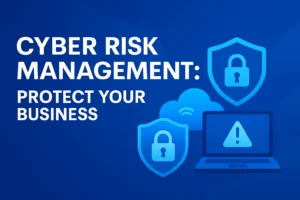As the automotive industry continues to evolve, cars are becoming more than just a means of transportation. With internet connectivity, remote control features, and advanced software systems, modern vehicles resemble mobile computers on wheels. But with this technological advancement comes a pressing question: Will your car need antivirus software?
The answer, quite likely, is yes—and sooner than you might think. As vehicles become increasingly smart and interconnected, the need for comprehensive cybersecurity measures, including antivirus and other security suites, is rapidly approaching. Imagine a world where your car undergoes penetration testing much like your office network—this future may be closer than you think.
The Rise of Smart Cars and Connectivity
Take BMW, for example. Their latest smart cars allow drivers to remotely control certain functions, such as unlocking doors and starting the engine, all from a mobile app. This connectivity adds convenience but also increases the risk of cyberattacks. As more vehicles adopt similar features, it’s essential to consider the vulnerabilities that come with being constantly connected to the internet.
Why Your Car Will Need an Antivirus
Just like computers and smartphones, connected cars are susceptible to malware, hacking, and other cyber threats. In the near future, having antivirus software in your car could become just as common as having it on your laptop.
Here’s why your car will need antivirus software:
Prevent Malware Attacks: With connected cars communicating over the internet, they could be targeted by malware that seeks to exploit software vulnerabilities. Antivirus software would act as a first line of defence, detecting and preventing these attacks before they can compromise your vehicle’s systems.
Protect Your Personal Data: Modern cars collect a wealth of personal data, from GPS locations to phone contact lists. A breach could expose this sensitive information to hackers. An antivirus system would ensure your data remains private and secure.
Guard Against Remote Hijacking: Features like BMW’s remote control via mobile phone offer great convenience, but they also present risks. Hackers could potentially take control of your vehicle’s systems from anywhere in the world. With antivirus protection and regular security updates, these risks can be minimised.
Penetration Testing for Your Car? It’s Not Far Away
The idea of conducting penetration tests on your vehicle may sound far-fetched, but it’s already becoming a reality. Penetration testing involves simulating cyberattacks to discover vulnerabilities in a system before hackers can exploit them. Just as businesses perform penetration tests on their networks, cars will likely undergo the same process to ensure their cybersecurity measures are up to standard.
Imagine bringing your car in for a service, and instead of just checking the oil and brakes, the technician runs a comprehensive cybersecurity scan to test for weaknesses in the software. It’s not far-fetched—in fact, it’s a future we’re moving towards rapidly.
Automotive Manufacturers Embracing Cybersecurity
Leading automakers are already recognising the importance of cybersecurity in their vehicles. Tesla regularly updates its cars’ software to patch vulnerabilities, much like a computer operating system. BMW and other manufacturers are investing heavily in cybersecurity, knowing that the stakes are high as cars become more digital.
Beyond antivirus, these manufacturers are developing entire security suites for vehicles that will monitor for threats, issue patches, and ensure the vehicle’s systems remain secure against new and emerging threats.
The Future: Comprehensive Cybersecurity for Your Car
In the near future, securing your vehicle won’t just mean locking your doors. Cars will require sophisticated cybersecurity solutions, including antivirus, firewalls, encryption, and regular software updates. Just as we’ve come to expect regular updates on our smartphones, smart cars will follow the same pattern.
The potential for cybercriminals to hijack vehicles, steal personal data, or disable systems is very real, and the need for advanced protection is growing with every new technological development. Antivirus software will become essential in preventing these threats and ensuring the safety of drivers.
Conclusion: Is Your Car’s Cybersecurity Ready?
The days of simply worrying about physical threats to your car are quickly fading. With cars becoming internet-ready, the need for cybersecurity is more urgent than ever. Antivirus software, penetration testing, and security suites will soon be commonplace in vehicles, offering protection from the growing threat of cyberattacks.
Whether you drive a BMW smart car with remote control features or any other connected vehicle, it’s clear that cybersecurity will play a critical role in the future of driving. Prepare yourself for a time when protecting your car from hackers will be just as important as regular maintenance.







